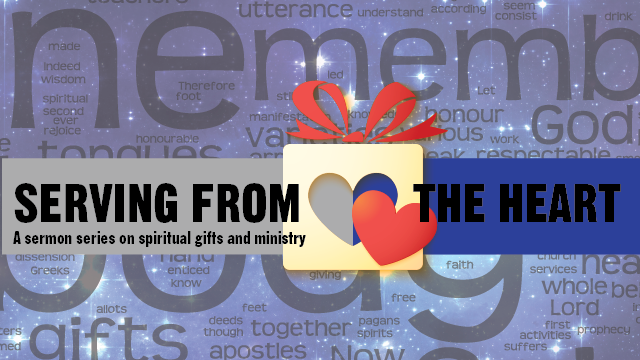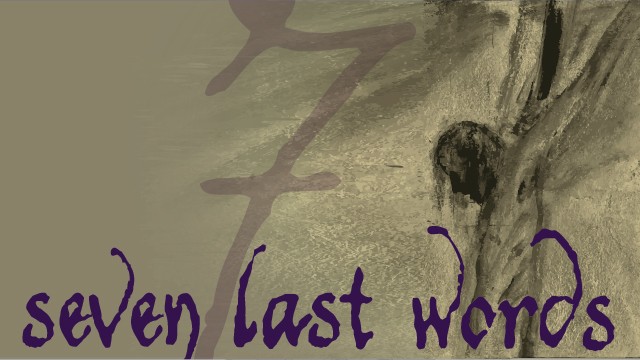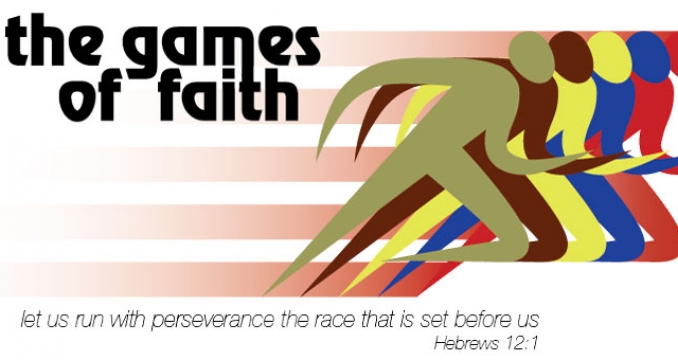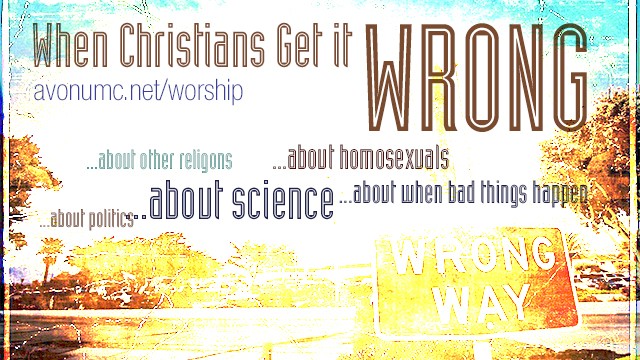Discover AUMC Sermons
AUMC Sermons
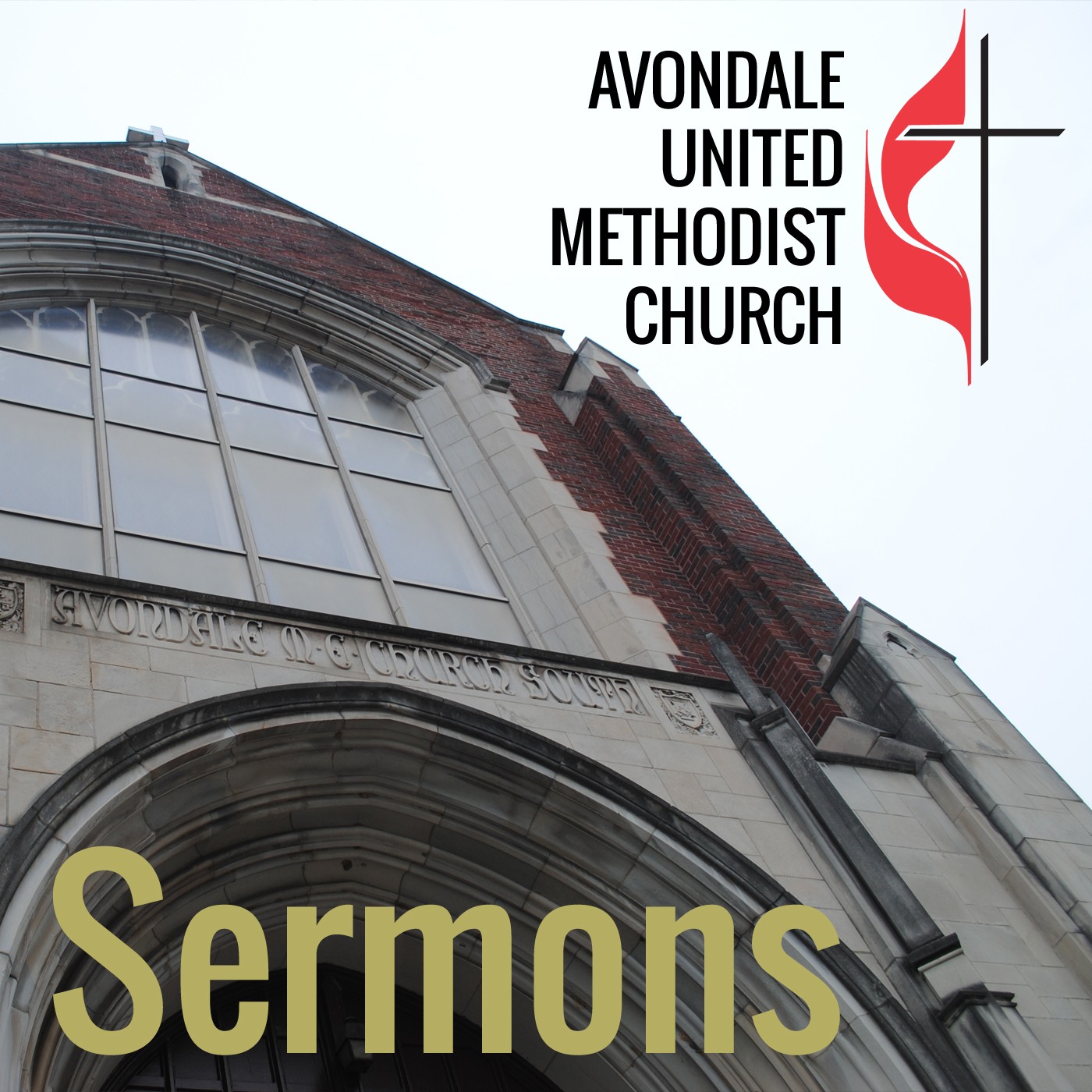
AUMC Sermons
Author: Brandon Harris
Subscribed: 0Played: 146Subscribe
Share
© Copyright 2020
Description
At the center of worship at Avondale UMC is the Word. That's because at the center of our life is the Word Made Flesh (John 1). As we receive the word of God through the reading of Scripture, the proclamation of the sermon, and the ministry of the Holy
85 Episodes
Reverse
Gifts are not given without expectation. God's blessings have purpose. How we steward those gifts impacts not only our own wellbeing, but also the fulfillment of God's mission. This sermon will explore the parable of the talents as a call to be faithful stewards of our spiritual gifts.
Spiritual gifts are in everyone. How will you use yours?
God helps us be of service to Him
At the center of worship at Avondale UMC is the Word. That's because at the center of our life is the Word Made Flesh (John 1). As we receive the word of God through the reading of Scripture, the proclamation of the sermon, and the ministry of the Holy
At the center of worship at Avondale UMC is the Word. That's because at the center of our life is the Word Made Flesh (John 1). As we receive the word of God through the reading of Scripture, the proclamation of the sermon, and the ministry of the Holy
At the center of worship at Avondale UMC is the Word. That's because at the center of our life is the Word Made Flesh (John 1). As we receive the word of God through the reading of Scripture, the proclamation of the sermon, and the ministry of the Holy
At the center of worship at Avondale UMC is the Word. That's because at the center of our life is the Word Made Flesh (John 1). As we receive the word of God through the reading of Scripture, the proclamation of the sermon, and the ministry of the Holy
At the center of worship at Avondale UMC is the Word. That's because at the center of our life is the Word Made Flesh (John 1). As we receive the word of God through the reading of Scripture, the proclamation of the sermon, and the ministry of the Holy
At the center of worship at Avondale UMC is the Word. That's because at the center of our life is the Word Made Flesh (John 1). As we receive the word of God through the reading of Scripture, the proclamation of the sermon, and the ministry of the Holy
At the center of worship at Avondale UMC is the Word. That's because at the center of our life is the Word Made Flesh (John 1). As we receive the word of God through the reading of Scripture, the proclamation of the sermon, and the ministry of the Holy
At the center of worship at Avondale UMC is the Word. That's because at the center of our life is the Word Made Flesh (John 1). As we receive the word of God through the reading of Scripture, the proclamation of the sermon, and the ministry of the Holy
The path of discipleship is not
easy; it ends in the cross, after
all! Therefore, part part of
following Jesus on that path is a
process of learning and training
for the hardships and perils
ahead. This sermon will explore
some of the contours of a
discipleship training regimen.
The Bible suggests that the
church, the followers of a
crucified and resurrected Savior,
is God's best plan to share the
message of hope and salvation in
Jesus with a world that is lost and
broken. This sermon will explore
what it looks like for Christians to
take God's plan seriously as our
purpose and mission.
There may be no more divisive issue for the church in the 21st century than the issue of homosexuality. But, what we cannot deny, however, is that it is more than an issue; it is a reality that involves real people, and
that our approach to gays and lesbians is affecting our witness of the gospel. Therefore, we must explore what a faithful engagement with gays and lesbians looks like. This sermon will look at how the gospel is implicated in the church's stance, how we can justify an open stance to gays and lesbians, and where open questions remain in light of being accepting and open.
God transcends science and
politics, yet Christians often make
the mistake of making him
dependent upon or subservient to
them. This sermon will explore
what a faithful place for the
church in these realms looks like
and how we might offer a helpful
voice.
Often Christians will chalk up disappointment and sorrow and pain and loss to "God's will." Or, they may cloak these sentiments in pious hope, "Everything happens for a reason." Other times, we assess tragedy as a punishment, judging that God brought calamity in response to unrepented sin. This sermon will explore these themes, asking whether God causes all suffering or any suffering at all, and whether calamity indicative of God's judgment and displeasure.
Christians are custodians of traditions that proclaim Jesus as "the way" and "the truth," yet we exist in a world worshiping other gods whose worshipers make similar claims about them. One way to navigate that tension is simply to reject other faiths as irrelevant, wrongheaded, and meaningless. But, faith, like the truths it presupposes, is experiential and dependent upon stories and symbols unique to a particular people. A healthy approach to navigating the relationship of Christian faith with other religions requires that we acknowledge the source and limits of our experience of truth.
The church is made up of sinners, so why are we surprised when people in the church do, say, and think stupid things? We shouldn't be surprised that Christians act out of fear, self-interest, confusion, and spite, not that our proclivity to these things is an excuse for ignoring them! Rather, our proclivity to sin calls for our earnest repentance and our trust in God's grace. This sermon will briefly explore the nature of the 12 disciples as a community that often got it wrong--about Jesus, about his mission, about their role--and it will explore what it means to live a failed life in the shadow of the cross.
The salvation of God was incarnate in Jesus, a particular Jewish man who lived 2,000 years ago Yet, the gospel of salvation was not limited to the Jews. It was immeidatley shared with oriental magi; it took root in Gentile communities through Paul's ministry; and it has continued to take surprising shapes, being embodied in the church, which, though it transcends race, class, and culture, is comprised, of particular peoples who wear these realities in their skin, in their circumstances, and in their souls. Our mission is to uncover the mystery for our present age in ways that the rich variety of God's wisdom is manifest.
"Best of all, God is with us." These are reportedly John Wesley's dying words, an expression of faith uttered in his final breath. The gift of Christmas is Emmanuel, God with us. But, the challenge of Christmas is that this presence isn't comfy and cozy; it is kicked out on the street, put on the run by a tyrant, embodied in fragile flesh under the terrible swords of murderers, and put on the run...in hiding, even.


